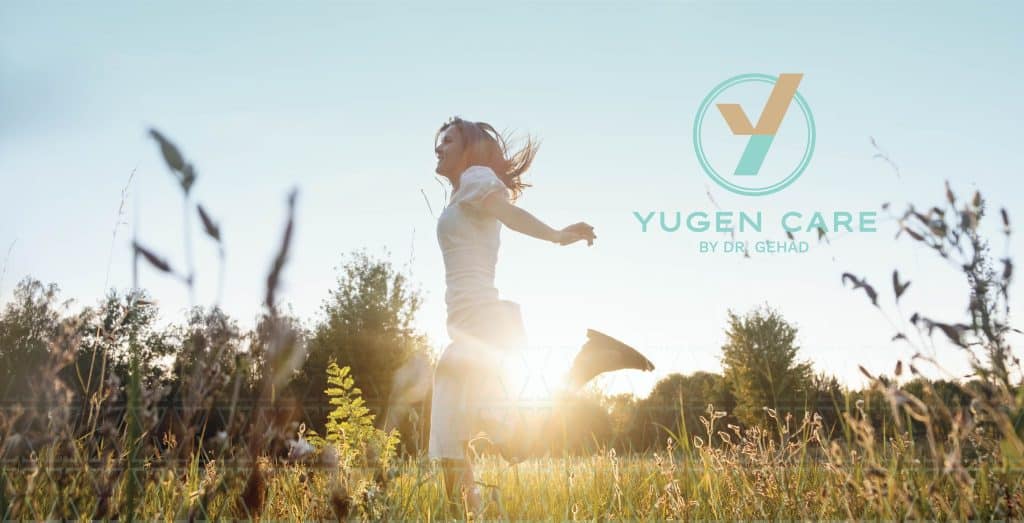How Lifestyle and Habits Affect Biological Aging

WHAT IS BIOLOGICAL AGE? AND DOES IT MEAN ANYTHING TO YOUR HEALTH?
First, you have two types of age, chronological and biological, which we need to know the difference.
Chronological age, is the number of years you have been alive; the number of birthdays you’ve had.
Biological age, on the other hand, is your internal age, it can give a more complete understanding of a person’s aging process. It measures how well or poorly your body is functioning relative to your actual calendar age.
For example, you may have a chronological age, of 65, but because of a healthy and active lifestyle, your body is biologically more similar to someone with a chronological age of 55. Your biological age would, therefore, be 55.
So your biological age reveals how well your body is working and how well it should be working given your chronological age.
This points to the idea of chronological age (how old we are) versus biological age (how old our bodies function).
CAN WE DECREASE AND REVERSE BIO-AGE?
Knowing your biological age is a big step in understanding the entirety of your health profile. But tracking your biological age is equally important. Because biological age can shift, by changing your lifestyle over time, which allow you to understand what is good and bad for your health.
Knowing where you stand and the habits that can affect your biological age can be a key component, to improve your overall health. Ideally, like your chronological age, your biological age will be a number worth celebrating.
When you compare people who have spent the same number of years on this earth, but who look and feel years apart then you’ve probably recognized that the aging process can occur at different rates for different people, and that rate can be greatly influenced by a combination of genetics and lifestyle factors, determining how fast or slow someone ages.
So, through modifications to our diet and lifestyle, we can actually turn back the clock on our biological age. You can control the speed of biological aging by speeding it up or slowing it down.
WHAT ARE THE FACTORS THAT AFFECT THE BIOLOGICAL AGE?
5 elements can affect our biological age (Nutrition, Fitness, Hydration, Sleep and Mental Health) Start by addressing some of the issues you can change right away, by reducing the inflammation and oxidative stress. For example:
- Create healthy dietary and eating habits
- Add more fruits, vegetables, lean meats, focus on nutrient-dense foods
- Consume antioxidants
- Reduce overly processed foods and animal products
- Pay attention to portion sizes
- Practice meal prep: Plan your meals, make a list, and go to the grocery store. Then, to keep yourself on track, do whatever meal prep you can ahead of time.
- Practice good sleep hygiene by turning off screens and relaxing an hour before you turn in at night. 6 to 8 hours. For reducing risk of dementia.
- Get more exercise by walking or starting a fitness program.
- Learn techniques for stress reduction and management, such as meditation or deep breathing. Have a positive mindset.
- Avoid Alcohol and Tobacco consumption
- Reduce exposure to environmental factors
- Keep yourself hydrated
- Maintain a healthy microbiome
CAN WE MEASURE OUR BIOLOGICAL AGE?
At Yugen Care we provide a new scientific and powerful DNA Age Test that make knowing the biological age available to anyone. It analyzes the impact that lifestyle, nutrition, illness, and genetics have had on your body. It determines how old your physical body is and the rate of the aging process. This is the ideal test to monitor how your lifestyle is impacting your longevity. Based on the results, for people who have higher biological age than their chronological age, this should be considered an indicator, a warning light, or an early sign of health deterioration. Therefore, we create unique personalized nutrition and lifestyle guidelines and program to help you reverse your biological age.
CONCLUSION
As the field of longevity and aging research advances, biological age has become by far the more important age to pay attention to, because as it turns out, our cells don’t regard our birthdays the same way we do. The good news? Your biological age is totally up to you! In fact, you can, for the most part, control your biological age through your daily habits.
Now is a great time to make changes that can make a positive difference. The goal is to focus on those habits that lower age expectancy and turn them into healthy habits that add to your life.
By giving your body and mind a reason to live, and creating a sense of meaning, not only improves quality of life, but enhances health and longevity as well.


